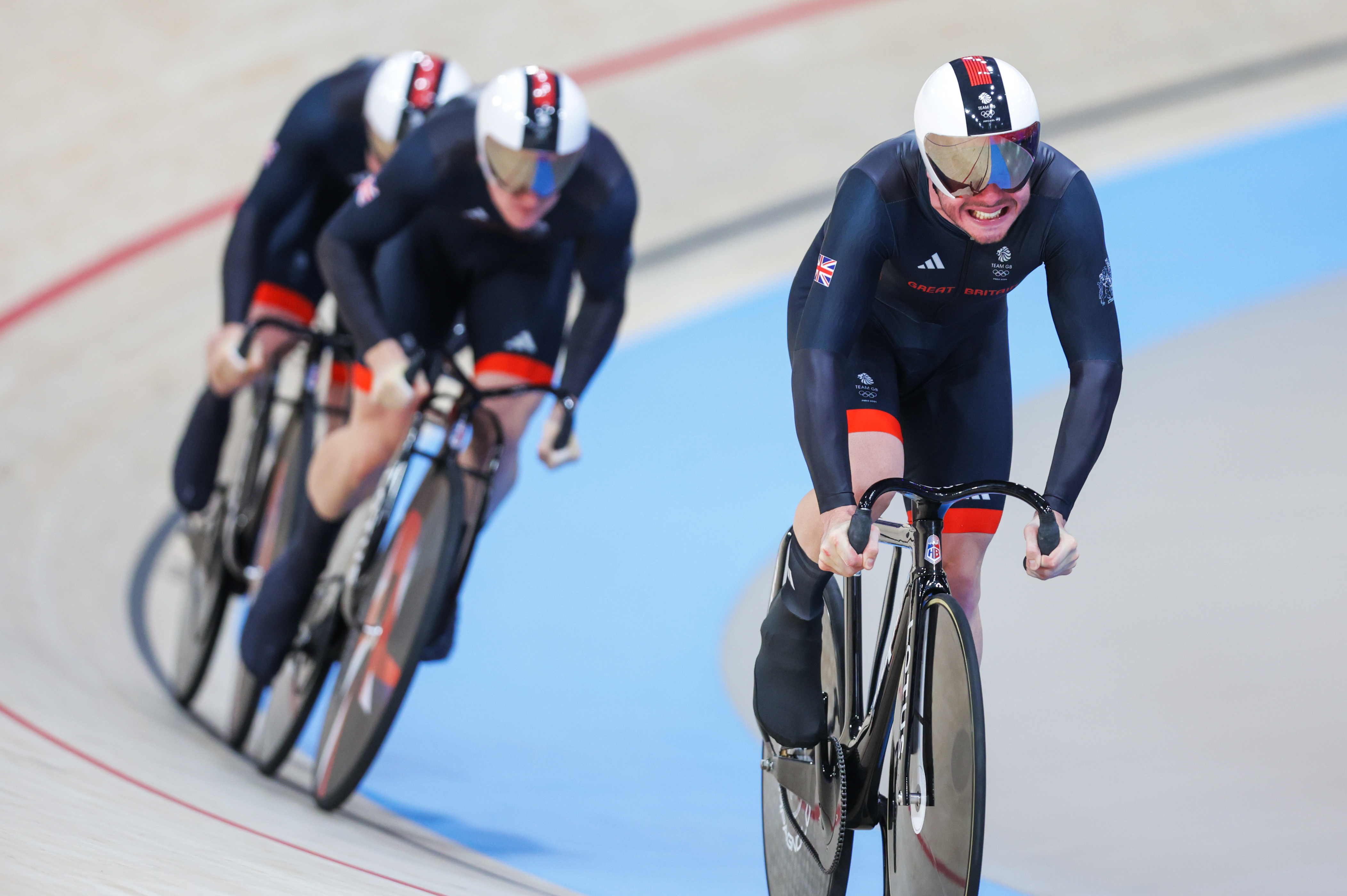
Twenty-year-old Ed Lowe had never been to a championship event before he raced in the men's team sprint at the Paris Olympics, and won a silver medal.
The youngest member of the trio – by five years – he was only brought onto the elite programme within British Cycling 10 months ago. At the time of the last Olympics, he was still racing in the junior ranks, with Paris barely a dream in his mind.
"When I got told that I was going to be in the Olympic team, it was a bit overwhelming," said Lowe. Now he's a silver medallist, and an example of the up-and-coming talent within the British men's sprint squad.
With Jack Carlin and fellow debutant Hamish Turnbull in tow, the 20-year-old ripped out of the start gates to earn an honourable second place at the Games on Tuesday night. Why honourable? Well, for a simple reason: their opponents were the Dutch, a trio that's so generationally strong, they have won four out of the last five World Championships, and broke the world record twice in Paris on their way to gold.
Still, beneath the medal result, lay an interesting statistic. Between them, Dutchmen Roy van den Berg, Harrie Lavreysen and Jeffrey Hoogland had an average age of 31. The average of GB's trio was only 24.
"You bring the age down," 27-year-old Carlin smiled to Lowe, before turning to face the press. "I think these two boys [Lowe and Turnbull], in their first Olympics, they've both stepped up massively and dealt with the pressures that come with the Olympic Games, which isn't easy. I think that we executed three amazing rides, and we've reaped the rewards of that."
Between 2008 and 2016, GB dominated the three-lap team sprint at the Games, led by Chris Hoy and then Jason Kenny, both of whom have since received knighthoods. And yet, for all the supremacy of the glory days, Lowe, Carlin and Turnbull went the fastest any British trio has ever gone in Paris, clocking 41.814 seconds in the final.
"It's on the up," Lowe said, asked by Cycling Weekly about the state of British men's track sprinting. "It's my birthday in two weeks, and I'll be 21. We're still quite a young team. We've still got a lot of progression ahead of us, training hard. We'll enjoy this, but we've still got our sights on getting one grade higher the next Games."
When an athlete wins a silver medal, there's typically a hint of disappointment in their voice, a sense of what-could-have-been. No such thing was notable in GB's trio. Lowe was "ecstatic" with the result, Turnbull "buzzing". Against a team like the Netherlands, silver felt like gold.
"That Dutch team's in a league of their own," said Carlin. "You look at that, breaking the world record, and they were seven tenths [of a second] ahead of us, which is miles in terms of performance in team sprint. But we executed three amazing rides. Really clean, really composed."
In four years' time, when the LA Olympics roll round, the average age of the current Dutch trio will be 35. Lowe alone will be 24, and likely still one of the youngest members of the squad.
GB's sprinting past shows that periods of dominance do not last forever. The Dutch rule, too, will likely end. And when it does, waiting in the wings is the new guard of British track sprinting, developing with promise, under the watchful eye of its old guard.
"The lads did a really good job," said Kenny, a seven-time Olympic champion, and the current trio's coach. "I think as a team it's really exciting. That's the best thing about the day for me."
It was a silver medal that was won, not a gold that was lost. The future is bright.







